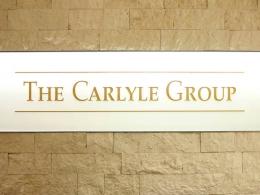Private equity major Blackstone may be exiting its maiden investment in India, Emcure Pharma, through redemption of shares by the promoters, a move triggered possibly on account of some differences between the PE firm and the Pune-based pharma company over the exit strategy.
Emcure Pharma plans to buy back shares issued to global PE major Blackstone, which invested $50 million in the firm back in July 2006. Blackstone may be keen on exiting Emcure as the pharma player’s IPO plans have been delayed for a while now, according to sources, familiar with the development.
Almost parallel to this development, PE major Kohlberg Kravis Roberts & Co (KKR) is reportedly looking at making fresh investments in Emcure. Last month, Financial Express reported that KKR was close to investing $50 million in Emcure Pharma, a Rs 600-crore company, founded by Satish Mehta in 1981, that is into generic drugs, APIs and contract research.
The key bone of contention between the two parties is not known although, informed sources say, issues pertaining to exit strategy between Blackstone and Emcure might have arisen as the Pune-based company may not have been able to reach certain performance indicators which enable it to launch a public offering. An IPO would have been an ideal exit route for Blackstone, which may have converted its preference share to common equity shares before such an issue. Sources said, even if KKR invests, it is likely to be through convertible instruments.
A source said, if Emcure is likely to sell the same amount of shares to KKR at a comparatively higher price, it is not clear why the other PE player would pay a premium. The details of the share prices could not be ascertained yet. The ability of Emcure promoter to buy back the stake held by Blackstone and offer it at a higher price to another would also depend on the terms of shareholders agreement and call option available.
According to sources, Emcure issued redeemable preference shares to Blackstone in 2006. As per the agreement, if the investors preferred not to convert shares into equity (optionally convertible), the promoters could redeem shares and give the invested amount to Blackstone at an agreed percentage of returns. Emcure plans to return cash to Blackstone with about 7-8% returns.
These redeemable preference shares or debentures can be convertible into equity shares at the option of the investor. But, according to the Reserve Bank of India (RBI) 2007 guidelines for preference shares and debentures, only fully and mandatorily convertible shares will be considered to be FDI. All other preference shares and debentures including optionally convertible are considered to be debt, said a Mumbai-based investment banker.
Despite repeated attempts, Satish Mehta, managing director, Emcure Pharma could not be reached for comments. When contacted, the company spokesperson declined to comment on the matter. A Blackstone spokesperson said "no comments" when contacted by VCCircle. Akhil Gupta, chairman and managing director of Blackstone Advisors India Private Ltd, is a non-executive director on Emcure Board.
According to a pharma industry expert, Emcure has kept its plans to enter the US market on hold. “The US market is getting too competitive by the day and hence margins are shrinking for branded generics. This may cause Emcure to re-think the US entry plans. They also kept their IPO plans on hold which may have forced Blackstone to exit from the company.”
The other PE major, KKR, which is reportedly planning to invest in Emcure, has been rather active in India. Only last month, KKR invested $166 million in Dalmia Cement (Bharat) Ltd subsidiary Avnija properties for acquiring about 14.5%. In March, it invested about $75 million to acquire 10% stake in Coffee Day Resorts & Hotels Ltd. In 2009, KKR invested $175 million in Aricent Inc, an application software company it acquired in 2006. In 2008, KKR invested $250 million to buy 2% in Bharti Infratel, the tower arm of Bharti Airtel.






